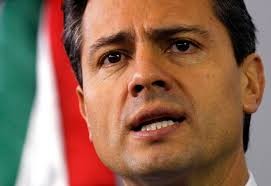It looks like you're using an Ad Blocker.
Please white-list or disable AboveTopSecret.com in your ad-blocking tool.
Thank you.
Some features of ATS will be disabled while you continue to use an ad-blocker.
share:

It's been a while since I've done one of these Skunk Works threads, but after following several recent events in the news, I just couldn't help but wonder if I could come up with some connection that might explain why some of the crazy events we've been reading about are taking place.
(WARNING: This is going to take me some time. Very long thread ahead....)
Let's start with the recent reports of ISIS and Al Qaeda operating out of Mexico.
Yesterday, Bassago posted the following thread: Judicial Watch: Feds Bulletin Describes Threat of Imminent Terrorist Attack on Southern Border
Islamic terrorist groups are operating in the Mexican border city of Ciudad Juarez and planning to attack the United States with car bombs or other vehicle born improvised explosive devices (VBIED). High-level federal law enforcement, intelligence and other sources have confirmed to Judicial Watch that a warning bulletin for an imminent terrorist attack on the border has been issued. Agents across a number of Homeland Security, Justice and Defense agencies have all been placed on alert and instructed to aggressively work all possible leads and sources concerning this imminent terrorist threat.
Specifically, Judicial Watch sources reveal that the militant group Islamic State of Iraq and Greater Syria (ISIS) is confirmed to now be operating in Juarez, a famously crime-infested narcotics hotbed situated across from El Paso, Texas. Violent crimes are so rampant in Juarez that the U.S. State Department has issued a number of travel warnings for anyone planning to go there. The last one was issued just a few days ago.
Intelligence officials have picked up radio talk and chatter indicating that the terrorist groups are going to “carry out an attack on the border,” according to one JW source. “It’s coming very soon,” according to this high-level source, who clearly identified the groups planning the plots as “ISIS and Al Qaeda.” An attack is so imminent that the commanding general at Ft. Bliss, the U.S. Army post in El Paso, is being briefed, another source confirms. The Department of Homeland Security (DHS) did not respond to multiple inquiries from Judicial Watch, both telephonic and in writing, about this information.
The disturbing inside intelligence comes on the heels of news reports revealing that U.S. intelligence has picked up increased chatter among Islamist terror networks approaching the 13th anniversary of the 9/11 attacks. While these terrorists reportedly plan their attack just outside the U.S., President Obama admits that “we don’t have a strategy yet” to combat ISIS. “I don’t want to put the cart before the horse,” the commander-in-chief said this week during a White House press briefing. “I think what I’ve seen in some of the news reports suggest that folks are getting a little further ahead of what we’re at than what we currently are.”
The administration has also covered up, or at the very least downplayed, a serious epidemic of crime along the Mexican border even as heavily armed drug cartels have taken over portions of the region. Judicial Watch has reported that the U.S. Border Patrol actually ordered officers to avoid the most crime-infested stretches because they’re “too dangerous” and patrolling them could result in an “international incident” of cross border shooting. In the meantime, who could forget the famous words of Obama’s first Homeland Security Secretary, Janet Napolitano; the southern border is “as secure as it has ever been.”
In other words, a perfect trifecta of border doom: ISIS, Al Qaeda & the Drug Cartels.
Oddly, the UK issued it's own terror alert yesterday: UK terror threat level raised to 'severe'
The UK's terror threat level has been raised from "substantial" to "severe" in response to conflicts in Iraq and Syria, Home Secretary Theresa May says.
The new alert level rates the risk of an attack on the UK "highly likely", although Mrs May said there was no evidence to suggest one was "imminent".
It is the second highest of five possible UK threat levels.
What I find unusual about this is that the raised alert level isn't based upon anything new or specific. Home Secretary Theresa May acknowledges there is no evidence of anything imminent. Aside from the US bombing ISIS positions, the conflict has largely raged in its current form for several months, if not longer. So why feel the need to raise the level now?
Last week, on August 20th, Rep. Ted Poe (R-TX) made a similar claim as the one now reported by the Judicial Watch announcement. ISIS was working in Mexico.
Wednesday on Newsmax TV's "America's Forum," Rep. Ted Poe (R-TX) was asked if there is any current interaction between ISIS and Mexican drug cartels he said "yes" and added they are "talking to each other."
Then the next day, Texas Governor Rick Perry followed with similar remarks that the Pentagon rejected, but still left open the possibility.
Pentagon press secretary, Navy Rear Adm. John Kirby, said there’s just no evidence of that — though it’s something to keep an eye on.
“I’ve seen no indication that they are coming across the border with Mexico. We have no information that leads us to believe that. That said, we do know they have aspirations to hit western targets and it’s something, as [Defense] Secretary Hagel said yesterday, that we’ve got to take seriously and with have to try to be ready for it,” Kirby said today on CNN.
Link.
So what's really going on?
The thought of ISIS working with Mexican drug cartels has never made much sense to me. Why would the cartels do anything to damage their influence and business in the drug trade? Increased US focus on the border would just be bad for business, and they've never had it better. We all know Obama seems intent on leaving the border fairly open for now.
The only way I could see ISIS working with the drug cartels is if there was big money involved. Could ISIS be paying for access? I could see the drug cartels taking interest in money or arms for just a few small favors. That much seems plausible.
But then there is the problem of the reported ISIS/Al Qaeda connection in Mexico. That too seems very unlikely. For more than a year, the two groups have openly fought with one another. Cooperating in Juarez, Mexico, just seems too unlikely.
Al-Qaeda disavows any ties with radical Islamist ISIS group in Syria, Iraq
Assessing the ISIS - al-Qaeda Split: Introduction
So at first blush, all of this seems to be just a political ploy to further opposition to Obama's border policy.
Unless....it's not.
Maybe there's another goal.

Just two weeks ago, the US Ambassador to Mexico, Anthony Wayne, visited Juarez, Mexico, to meet with Chihuahua's Governor and the Mayor of Juarez.
The August 14th Press release describes the purpose of the meeting as an "opportunity to discuss improvements in the security situation."
But Ambassador Wayne also:
The Ambassador later toured downtown with Juarez's Mayor.
But the part of the release that concerns the rest of this thread is this one line:
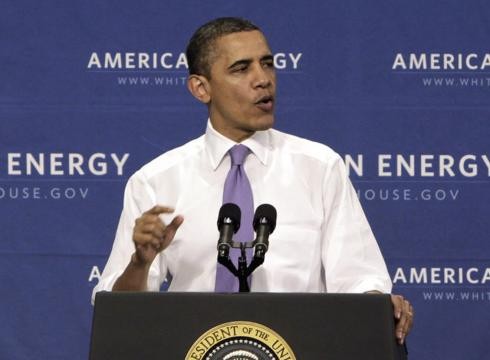
In 2011, President Obama gave a speech on the subject of America's Energy Security. In that speech, Obama said:
Unless....it's not.
Maybe there's another goal.

Just two weeks ago, the US Ambassador to Mexico, Anthony Wayne, visited Juarez, Mexico, to meet with Chihuahua's Governor and the Mayor of Juarez.
The August 14th Press release describes the purpose of the meeting as an "opportunity to discuss improvements in the security situation."
But Ambassador Wayne also:
...praised efforts to foster economic development and educational exhanges in the cross-border region.
"A strong economy is a key to a stronger Chihuahua. We commend Governor Duarte and Mayor Serrano for their commitment to create economic opportunities, and lay the groundwork for future economic growth. The investment environment has been strengthened by important security achievements; work remains to improve the situation and to further strengthen the investment environment, and the United States will continué its efforts to work with Mexico to address our shared security concerns.” Ambassador Wayne noted.
The Ambassador later toured downtown with Juarez's Mayor.
But the part of the release that concerns the rest of this thread is this one line:
The Governor also raised the issue of Mexico’s energy reforms, and noted that it will lead to significant investment opportunities in the energy sector in Chihuahua, especially in shale gas.

In 2011, President Obama gave a speech on the subject of America's Energy Security. In that speech, Obama said:
So here’s the bottom line: There are no quick fixes. Anybody who tells you otherwise isn’t telling you the truth.
...
We’ve known about the dangers of our oil dependence for decades. Richard Nixon talked about freeing ourselves from dependence on foreign oil. And every President since that time has talked about freeing ourselves from dependence on foreign oil. Politicians of every stripe have promised energy independence, but that promise has so far gone unmet.
I talked about reducing America’s dependence on oil when I was running for President, and I’m proud of the historic progress that we’ve made over the last two years towards that goal, and we’ll talk about that a little bit. But I’ve got to be honest. We’ve run into the same political gridlock, the same inertia that has held us back for decades.
That has to change. That has to change.
...
The United States of America cannot afford to bet our long-term prosperity, our long-term security on a resource that will eventually run out, and even before it runs out will get more and more expensive to extract from the ground...
And today, I want to announce a new goal, one that is reasonable, one that is achievable, and one that is necessary. When I was elected to this office, America imported 11 million barrels of oil a day. By a little more than a decade from now, we will have cut that by one-third. That is something that we can achieve. (Applause.) We can cut our oil dependence -- we can cut our oil dependence by a third.
I set this goal knowing that we’re still going to have to import some oil. It will remain an important part of our energy portfolio for quite some time, until we’ve gotten alternative energy strategies fully in force. And when it comes to the oil we import from other nations, obviously we’ve got to look at neighbors like Canada and Mexico that are stable and steady and reliable sources. We also have to look at other countries like Brazil. Part of the reason I went down there is to talk about energy with the Brazilians. They recently discovered significant new oil reserves, and we can share American technology and know-how with them as they develop these resources.
...
Now, even if we increase domestic oil production, that is not going to be the long-term solution to our energy challenge. I give out this statistic all the time, and forgive me for repeating it again: America holds about 2 percent of the world’s proven oil reserves. What that means is, is that even if we drilled every drop of oil out of every single one of the reserves that we possess -- offshore and onshore -- it still wouldn’t be enough to meet our long-term needs. We consume about 25 percent of the world’s oil. We only have 2 percent of the reserves. Even if we doubled U.S. oil production, we’re still really short.
So the only way for America’s energy supply to be truly secure is by permanently reducing our dependence on oil. We’re going to have to find ways to boost our efficiency so we use less oil. We’ve got to discover and produce cleaner, renewable sources of energy that also produce less carbon pollution, which is threatening our climate. And we’ve got to do it quickly.
Now, in terms of new sources of energy, we have a few different options. The first is natural gas. Recent innovations have given us the opportunity to tap large reserves –- perhaps a century’s worth of reserves, a hundred years worth of reserves -– in the shale under our feet.
...the potential for natural gas is enormous. And this is an area where there’s actually been some broad bipartisan agreement. Last year, more than 150 members of Congress from both sides of the aisle produced legislation providing incentives to use clean-burning natural gas in our vehicles instead of oil. And that's a big deal. Getting 150 members of Congress to agree on anything is a big deal. And they were even joined by T. Boone Pickens, a businessman who made his fortune on oil, but who is out there making the simple point that we can’t simply drill our way out of our energy problems.
edit on 30-8-2014 by loam because: (no reason given)

T. Boone Pickens is an interesting figure, with a long history of national political involvement. But his interest in natural gas seems nothing less than obsessive.
Pickens's involvement with the natural gas fueling campaign is long-running. He formed Pickens Fuel Corp. in 1997 and began touting natural gas as the best vehicular fuel alternative because it is a domestic resource that, among many advantages, is cleaner-burning (Natural Gas Vehicles or NGVs emit up to 30% less pollution than gasoline or diesel vehicles) and reduces foreign oil consumption. Reincorporated as Clean Energy Fuels Corp. in 2001, the company now owns and operates natural gas fueling stations from British Columbia to the Mexican border.
...
In the spring of 2010, Senator Kerry reached out to Mr. Pickens and encouraged his support of energy/climate change legislation he was drafting with Senators Lieberman and Graham. During a May 2010 meeting with reporters, Senator Kerry endorsed key provisions of “the Pickens Plan,” incorporating aspects of that in the Kerry-backed legislation calling for the greater use of domestic natural gas to replace foreign oil/diesel/gasoline in America’s heavy duty vehicle fleets.
The plan promotes a radical reduction in the United States' dependency upon foreign energy, particularly oil provided by nations in the OPEC cartel. Although the plan calls for introduction of various alternatives to oil, including wind and solar, its major component is the conversion of the nation's commercial transport sector away from OPEC diesel to natural gas.
(Link.)
So where am I going with all of this?
Stay with me... I know this is long...
In June of 2011, the NY Times published the following article:
Behind Veneer, Doubt on Future of Natural Gas
Energy companies have worked hard to promote the idea that natural gas is the fossil fuel of tomorrow, and they have found reliable allies among policy makers in Washington.
“The potential for natural gas is enormous,” President Obama said in a speech this year, having cited it as an issue on which Democrats and Republicans can agree.
The Department of Energy boasts in news releases about helping jump-start the boom in drilling by financing some research that made it possible to tap the gas trapped in shale formations deep underground.
In its annual forecasting reports, the United States Energy Information Administration, a division of the Energy Department, has steadily increased its estimates of domestic supplies of natural gas, and investors and the oil and gas industry have repeated them widely to make their case about a prosperous future.
But the article continues:
But not everyone in the Energy Information Administration agrees. In scores of internal e-mails and documents, officials within the Energy Information Administration, or E.I.A., voice skepticism about the shale gas industry.
...
“Am I just totally crazy, or does it seem like everyone and their mothers are endorsing shale gas without getting a really good understanding of the economics at the business level?” an energy analyst at the Energy Information Administration wrote in an April 27 e-mail to a colleague.
Another e-mail expresses similar doubts. “I agree with your concerns regarding the euphoria for shale gas and oil,”wrote a senior official in the forecasting division of the Energy Information Administration in an April 13 e-mail to a colleague at the administration.
“We might be in a ‘gold rush’ wherein a few folks have developed ‘monster’ wells,” he wrote, “so everyone assumes that all the wells will be ‘monsters.’ ”
...
Some of the e-mails suggest frustrations among the staff members in their attempt to push for a more accurate discussion of shale gas. One federal analyst, describing an Energy Information Administration publication on shale gas, complained that the administration shared the industry’s optimism. “It seems that science is pointing in one direction and industry PR is pointing in another,” wrote the analyst about shale gas drilling in an e-mail. “We still have to present the middle, even if the middle neglects to point out the strengths of scientific evidence over PR.”
Well, isn't that interesting? The political push for shale gas isn't just mild interest. It's a full court press from the Obama administration and others who believe this is in our national security and energy interests. So much so, the EIA releases favorable statements about the opportunities, despite the scientific objections of many within the agency itself.
But what's at the root of these objections?
An article published in June of last year, explains:
Shale gas won't stop peak oil, but could create an economic crisis
A new report out last week from the US Energy Information Administration (EIA) has doubled estimates of "technically recoverable" oil and gas resources available globally. The report says that shale-based resources potentially increase the world's total oil supplies by 11 per cent.
Acknowledging fault-lines in its new study, contracted to energy consulting firm Advanced Resources International Inc. (ARI), the EIA said:
"These shale oil and shale gas resource estimates are highly uncertain and will remain so until they are extensively tested with production wells."
...the EIA concedes that "the extent to which global technically recoverable shale resources will prove to be economically recoverable is not yet clear."
...Independent studies published over the last few months cast even more serious doubt over the viability of the shale gas boom.
A report released in March by the Berlin-based Energy Watch Group (EWG), a group of European scientists, undertook a comprehensive assessment of the availability and production rates for global oil and gas production, concluding that:"... world oil production has not increased anymore but has entered a plateau since about 2005."
Crude oil production was "already in slight decline since about 2008." This is consistent with the EWG's earlier finding that global conventional oil production had peaked in 2006 - as subsequently corroborated by the International Energy Agency (IEA) in 2010.
...
Despite accounting for nearly 40 per cent of US natural gas production, shale gas production has "been on a plateau since December 2011 - 80 per cent of shale gas production comes from five plays", some of which are already in decline.
edit on 30-8-2014 by loam because: (no reason given)
Then in May of this year, another article appeared indicating:
At the same time, the article continues:
Any doubt this is important to the US and Europe?

Even Putin's invasion of Crimea, and now other parts of the Ukraine, appears to be really about shale gas opportunities:
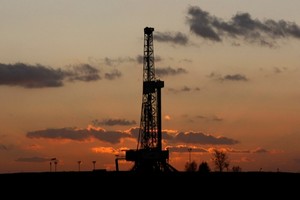
Everyone seems to be obsessing about shale gas:
In June of this year, the following article appeared in the Wall Street Journal:
Write-down of two-thirds of US shale oil explodes fracking myth: Industry's over-inflated reserve estimates are unravelling, and with it the 'American dream' of oil independence
Next month, the US Energy Information Administration (EIA) will publish a new estimate of US shale deposits set to deal a death-blow to industry hype about a new golden era of US energy independence by fracking unconventional oil and gas.
EIA officials told the Los Angeles Times that previous estimates of recoverable oil in the Monterey shale reserves in California of about 15.4 billion barrels were vastly overstated. The revised estimate, they said, will slash this amount by 96% to a puny 600 million barrels of oil.
The Monterey formation, previously believed to contain more than double the amount of oil estimated at the Bakken shale in North Dakota, and five times larger than the Eagle Ford shale in South Texas, was slated to add up to 2.8 million jobs by 2020 and boost government tax revenues by $24.6 billion a year.
Industry lobbyists have for long highlighted the Monterey shale reserves as the big game-changer for US oil and gas production.
At the same time, the article continues:
According to a secret trade memo obtained by the Huffington Post, the Obama administration and the European Union are pushing ahead with efforts to "expand US fracking, offshore oil drilling and natural gas exploration", as well as exports to the EU, under the prospective Transatlantic Trade and Investment Partnership (TTIP) agreement.
Any doubt this is important to the US and Europe?

Even Putin's invasion of Crimea, and now other parts of the Ukraine, appears to be really about shale gas opportunities:
Beneath the Ukraine Crisis: Shale Gas
Behind the geopolitics pitting Russia against the West – and the ethnic tensions tearing Ukraine east and west – another backdrop for understanding this deepening conflict is the big-money competition for Ukraine’s oil and natural gas, writes Nat Parry.
The crisis gripping Ukraine has plunged transatlantic relations to their lowest point since the Cold War and threatens to send Ukraine into an armed conflict with potentially dire consequences for the country and the wider region.
...Ukraine has Europe’s third-largest shale gas reserves at 42 trillion cubic feet [1.2 trillion cubic meters], according to the U.S. Energy Information Administration.
...
Russia’s state-owned Gazprom, controlling nearly one-fifth of the world’s gas reserves, supplies more than half of Ukraine’s gas annually, and about 30 percent of Europe’s. It has often used this as political and economic leverage over Kiev and Brussels, cutting gas supplies repeatedly over the past decade (in the winters of 2005-2006, 2007-2008, and again in 2008-2009), leading to energy shortages not only in Ukraine, but Western European countries as well. This leverage, however, came under challenge in 2013 as Ukraine took steps towards breaking its dependence on Russian gas.
On Nov. 5, 2013 (just a few weeks before the Maidan demonstrations began in Kiev), Chevron signed a 50-year agreement with the Ukrainian government to develop oil and gas in western Ukraine.
...
In announcing the deal, President Viktor Yanukovych said that it “will let Ukraine satisfy its gas needs completely and, under the optimistic scenario, export energy resources by 2020.” Reuters characterized the deal as ”another step in a drive for more energy independence from Russia.”
The United States offered its diplomatic support, with Geoffrey Pyatt, the U.S. ambassador to Ukraine, saying, “I’m very determined to cooperate with the Ukrainian government in strengthening Ukraine’s energy independence.”
...When it comes to Crimea, numerous oil companies including Chevron, Shell, ExxonMobil, Repsol and even Petrochina have shown interest in developing its offshore energy assets.
Believing that Crimea’s onshore and offshore fields will live up to expectations, these companies have greatly expanded their exploration of the Black Sea off the Crimean peninsula. Some analysts believe that one of Vladimir Putin’s motivations for annexing Crimea was to ensure that Gazprom will control Crimean offshore energy assets – in addition to ensuring the continued use of Crimea as host to Russia’s Black Sea Fleet.

Everyone seems to be obsessing about shale gas:
SHALE GAS: AN ALTERNATIVE ENERGY FOR EU, TURKEY
The natural gas crisis between Russia and Ukraine has pushed many European countries to review their dependency on Russian gas. As an alternative to natural gas, the exploration of shale gas has recently become a hot topic of discussion...
At the beginning of July, the European Commissioner for Energy said that Europe has the potential to satisfy 10 percent of its energy requirement through shale gas and underlined that thanks to this potential, Europe can reduce its dependency on Russia. In Europe, which is believed to have 13 trillion cubic meters of shale gas, countries such as Poland, the U.K., Romania and Ukraine have started to issue licenses to private companies regarding the exploration and drilling of shale gas.
Germany, which is estimated to have some 2.3 trillion cubic meters of shale gas, pressed the button to amend the legislation that does not allow exploration and extraction of shale gas.
In June of this year, the following article appeared in the Wall Street Journal:
Shale Gas Is America's Geopolitical Trump Card
When Russia and China announced a $400 billion deal last month for Russia to supply China with 38 billion cubic meters of natural gas annually for three decades, some analysts heralded it as a tectonic geopolitical shift.
...The real geopolitical shift is the shale-energy revolution that took off in the past decade.
The shale revolution has a number of implications for American foreign policy. Shale-energy production boosts the economy and produces more jobs. Reducing imports helps the balance of payments. New tax revenues ease government budgets. Cheaper energy makes industry more competitive internationally, particularly energy-intensive industries like petrochemicals, aluminum, steel and others.
There are also domestic political effects. One is psychological. For some time, many people at home and abroad have bought into the myth of American decline. Increasing dependence on energy imports was often cited as evidence. The shale revolution changes that dependence and demonstrates the combination of entrepreneurship, property rights and capital markets that are this country's underlying strength.
edit on 30-8-2014 by loam because: (no reason given)

So what's all of this got to do with ISIS in Mexico?
Well, here's where the fun Skunk Works part begins.
PEMEX, Mexico's state owned petroleum company, gave a presentation in November of last year to the 17th Annual Mexican Energy conference describing the Potential and Strategy of Shale Oil/Gas in Mexico.
In that presentation, PEMEX describes numerous shale oil and gas opportunities and activities in Mexico.
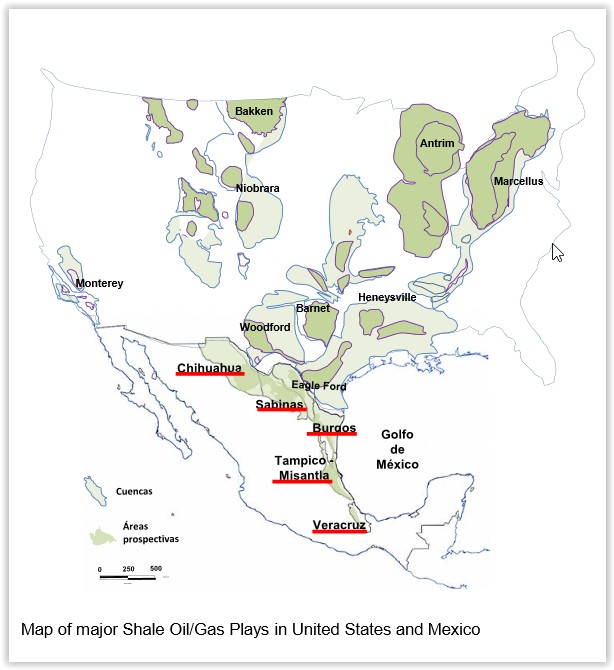
But what I focused on was the area in Chihuahua-- the focus of all that potential terror attention.
On one slide in the presentation, PEMEX indicates the prioritization of the various areas of interest, based upon geophysical, geological and geochemical studies:
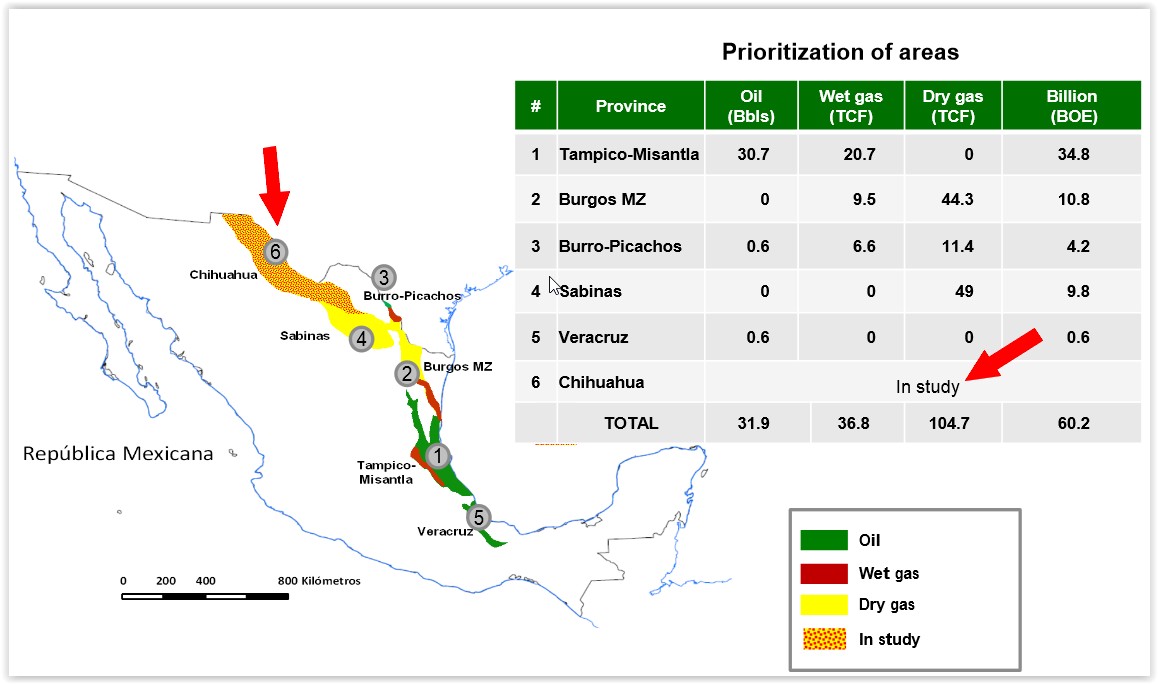
(The red arrows are my emphasis.)
Note the "In Study" status of the Chihuahua region. Note also, Chihuahua appears as dead last in terms of areas of interest.
In another slide, PEMEX identifies the number of wells either drilled or expected to be drilled in these areas over time. In particular, the presentation notes 10 wells over a three year period (from 2013 to 1015) for the region in Chihuahua that straddles the Texas border from Juarez to Ojinaga.
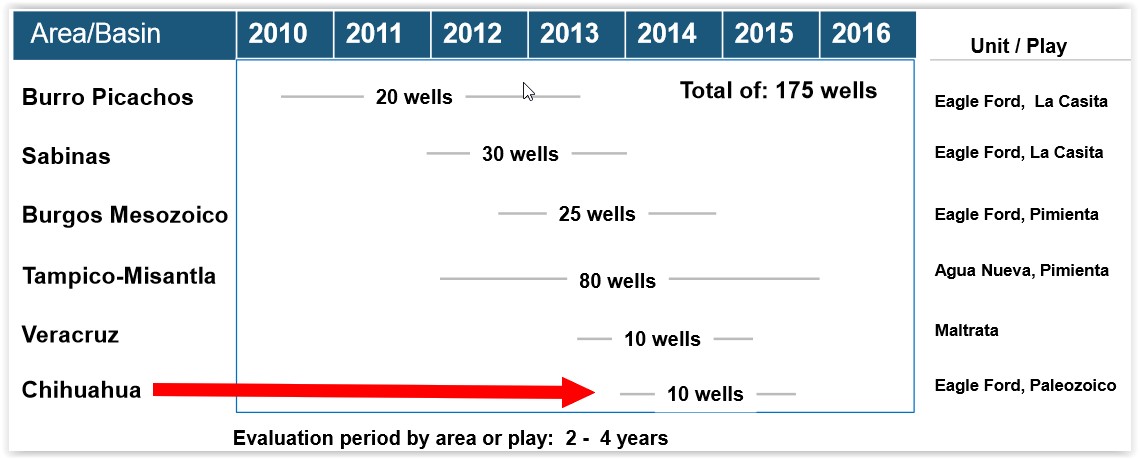
Remember, this presentation was given in November of 2013. But within three months, something significant changed. Not just by a little, but by a whole lot.
Pemex drills 29 wells in Ojinaga; exploration indicates huge shale gas reserves
Petroleos Mexicanos (Pemex) Chihuahua has drilled 29 exploration wells in the basin of Ojinaga and Ceballos, most of which demonstrate the feasibility of shale gas extraction (i.e., fracking).
Officials say there are more than 18-trillion cubic meters found in the first step, according to Ernesto Guerrero Lestarjette, president of Association of Geologists Chihuahua. Lestarjette shared the information at a meeting of researchers from UT-El Paso and universities in Chihuahua and Coahuila.
“With this information, we can say that we are seeing the most important change in history, not only in Ojinaga and neighboring towns, but throughout the state,” he said, adding that Pemex is waiting for “secondary” approvals to determine which companies will take on the work that he expects will “trigger economic development of a region that seemed forgotten.”
He said that details remain out of the public domain although “we know that the data obtained by Pemex wells gave positive information … [and the impact will be] many billions of dollars. This will affect all economic areas, [including] hotels, restaurants, shops and the people who provide services, etc.”
Suddenly, PEMEX went from 10 exploratory wells expected over a three year period to 29 exploratory wells in the first 90 days after their presentation....for an area it indicated was its lowest priority.
WOW.
And to place in context how much this "18-trillion cubic meters found in the first step" really is, Europe's TOTAL is estimated to be only 13 trillion cubic meters of shale gas. (Link.)

Any eyebrows raised yet?
So in the last year....a shale gas deposit larger than all of Europe's and stretching from Juarez to Ojinaga along the Texas border.....is discovered.....at a time when shale gas seems more important than ever.
After 9/11, many have reasonably claimed it was either used as a pretext for an oil war grab in Iraq or an actual false flag for the same objective.
Could we be seeing similar motivations along the Texas border?
Consider the various narratives we're seeing today from both sides of the political spectrum concerning our border security.
On the one side it's.....'dangerous things are coming across the boarder'....and as this week shows, in particular, Juarez.
On the other, this is a humanitarian endeavor. Illegals need our understanding, support and protection from the evils they are fleeing.
What if the 'not so secret' open border policy is really designed to facilitate or engineer a terror attack, or even a series of minor terror attacks, to be used as a pretext for US military intervention south of the border?
Remember, the Chihuahua shale gas deposit stretches from Juarez to Ojinaga just along the Texas border. If there actually were a terror attack traced from this region, who would really blame the US for 'temporarily' moving in?
The US could clean up the drug cartel violence now operating as a significant deterrent to extracting gas in this region. The Obama administration and others could claim the action was necessary to protect US citizens AND Mexicans who have long suffered from the violence of the cartels and possibly now or in the near future from this newest threat of ISIS.
While the Mexican government would certainly object to such an action, it's clear much of its public might not.
In a article published just yesterday concerning Mexico's current President:
Pena Nieto's rankings take a nose dive.
...the U.S.-based Pew Research Center, found that 47 percent of the respondents disapproved of Pena Nieto’s record, while 51 percent accorded the leader a positive influence. Compared with a similar survey taken in 2013, the president’s approval ranking dropped by nine points.
Yet the most recent Pew poll also found that about 60 percent of Mexicans considered Pena Nieto’s handling of the economy as poor, with nearly the same number opposed to opening up the national oil company Pemex up to foreign investment. In defining national problems, 79 percent of the people polled said crime was the big problem, with political corruption, environmental contamination, health care, and school quality among the other important issues mentioned.
One third of the Mexicans interviewed by Pew said they would migrate to the United States if an opportunity presented.
Essentially, Chihuahua could be Obama's Crimea.
If 1.2 trillion cubic meters of shale gas can entice Putin to seize Crimea, what does "18 trillion cubic meters found in the first step" just across the Texas boarder do to the US?
Do I really believe any of this is a possibility?
I'm not sure yet. I'm just speculating.....
But what I do know is there is some truth in the old saying "Follow the money."
edit on 30-8-2014 by loam because: (no reason given)
Sorry, I don't buy your long and convoluted thread. It's over complicates hugely the situation. The cartels control Mexico, ain't no way they will
allow ISIS to walk in and make the rules. ANY real threat from across the border will simply make the cartel's job to get drugs across even harder.
The border will be sealed if any major event happens there or anywhere in the US.
If anything, look for the cartels to get friendly with the US side, and help to track down the ISIS thugs and dispatch them in the way they do their rivals. The gulf between the cartels and the US government is not quite as large as we are made to believe.
Lastly, knowing a bit about Mexico, I know that virtually everybody is on the take, from the top down to the guy that delivers the bottled water. If the terrorists come with suitcases full of money, perhaps they can buy their way in, because that is the way the cartels have gained control of the Mexican economy and government. If anything bet on the cartels taking care of business with their own version of a SWAT team.
If anything, look for the cartels to get friendly with the US side, and help to track down the ISIS thugs and dispatch them in the way they do their rivals. The gulf between the cartels and the US government is not quite as large as we are made to believe.
Lastly, knowing a bit about Mexico, I know that virtually everybody is on the take, from the top down to the guy that delivers the bottled water. If the terrorists come with suitcases full of money, perhaps they can buy their way in, because that is the way the cartels have gained control of the Mexican economy and government. If anything bet on the cartels taking care of business with their own version of a SWAT team.
edit on
30-8-2014 by Aliensun because: (no reason given)
a reply to: Aliensun
You've partially missed the point.
ISIS doesn't actually have to be in Mexico if a false flag operation were in play.
Moreover, this thread is really about the possibility of a US military occupation of the zone.
The basic logic is as follows:
Shale gas has become the energy policy center piece of nearly every major country of the world. Everyone in jumping into the game out of national security interests.
US reserves have been grossly overestimated, damaging a previously thought available asset. And we aren't the only ones. See for example:
Shale gas revolution stalls in China as projected output halved
All of Europe only has 13 trillion cubic meters of shale gas, but literally right across the Texas border possibly sits 18 trillion cubic meters in Chihuahua just waiting for extraction.
As important as shale gas is to everyone, do you really think the dysfunction in Mexico will be permitted to manage the future of that asset?
You've partially missed the point.
ISIS doesn't actually have to be in Mexico if a false flag operation were in play.
Moreover, this thread is really about the possibility of a US military occupation of the zone.
The basic logic is as follows:
Shale gas has become the energy policy center piece of nearly every major country of the world. Everyone in jumping into the game out of national security interests.
US reserves have been grossly overestimated, damaging a previously thought available asset. And we aren't the only ones. See for example:
Shale gas revolution stalls in China as projected output halved
All of Europe only has 13 trillion cubic meters of shale gas, but literally right across the Texas border possibly sits 18 trillion cubic meters in Chihuahua just waiting for extraction.
As important as shale gas is to everyone, do you really think the dysfunction in Mexico will be permitted to manage the future of that asset?
edit on 30-8-2014 by loam because: (no reason given)
Great thread! At first I was abit hesitant, but about halfway through I was thinking the same thing as you. If what you have linked is true about the
amount of Shale gas In Chihuahua, it would definitely be enough for the U.S government to stage a false flag terror threat, but then you never know
maybe ISIS has made its way to south america, and are sending sleeper cells close to the border.
S&F for such an interesting read! This is why I come to this site
S&F for such an interesting read! This is why I come to this site
edit on pSat, 30 Aug 2014 21:53:54
-0500201454pAmerica/Chicago2014-08-30T21:53:54-05:0031p09 by ProspectPhilosopher because: (no reason given)
Interesting material.
From my unique personal perspective I believe that ISIS in Mexico is a tactical diversion, intended to draw focus of agencies and resources to the border region while ISIS recruiters are working to recruit from the domestic population inside the USA. Whether they attack across the border or not isn't nearly as serious a threat as building domestic converts into small cells capable of carrying out terrorist attacks inside the USA.
imo
From my unique personal perspective I believe that ISIS in Mexico is a tactical diversion, intended to draw focus of agencies and resources to the border region while ISIS recruiters are working to recruit from the domestic population inside the USA. Whether they attack across the border or not isn't nearly as serious a threat as building domestic converts into small cells capable of carrying out terrorist attacks inside the USA.
imo
Pay the Federales by the HEAD, 500,000 per,1,000,000 for high end assets,last I heard the Mexicans were a little short of pocket change because of
some crafty Government work in America.
a reply to: loam
Whew that took a while to read through and more time to digest. This ISIS thing in Mexico just seems dubious to me at best so that pushes the idea to the more likely false flag pretext. You've made a good case about annexing that portion of Mexico but I can't believe it would happen. Which I guess makes it a pretty good candidate for a FF.
Not to forget the Qatar natural gas pipeline they are trying (and failing) to get through Syria to the EU who is desperate for that as well as the US looking for any excuses to attack. It's not like we haven't done it before.
The part that doesn't sit right in my mind is us annexing the area regardless of what's there. Almost feels like maybe a joint US/Mexico backroom agreement where we both plunder it and the southern US border simply goes bye-bye.
Whew that took a while to read through and more time to digest. This ISIS thing in Mexico just seems dubious to me at best so that pushes the idea to the more likely false flag pretext. You've made a good case about annexing that portion of Mexico but I can't believe it would happen. Which I guess makes it a pretty good candidate for a FF.
Not to forget the Qatar natural gas pipeline they are trying (and failing) to get through Syria to the EU who is desperate for that as well as the US looking for any excuses to attack. It's not like we haven't done it before.
The part that doesn't sit right in my mind is us annexing the area regardless of what's there. Almost feels like maybe a joint US/Mexico backroom agreement where we both plunder it and the southern US border simply goes bye-bye.
a reply to: Bassago
In my view, it would be more like an occupation in the near term- with or without Mexican government consent. Over the long term, who knows?
If this 18 trillion cubic meter estimate is correct, you have to believe there are a whole lot of people in Washington and Wall Street taking interest.
In my view, it would be more like an occupation in the near term- with or without Mexican government consent. Over the long term, who knows?
If this 18 trillion cubic meter estimate is correct, you have to believe there are a whole lot of people in Washington and Wall Street taking interest.
a reply to: loam
True, so if we follow along with other global occupations then it would only be fair that we "allow" that region to hold a referendum on whether to leave Mexico and become the 51st state. That would take care of all the low wage immigrant demands the corporations are screaming about and help with the energy issues going forward.
If that happened it would also pretty much end any future for the republicans, libertarians and anyone who wasn't a democrat. This is looking quite devilish. It would certainly cement Obama's place in the history books as well.
True, so if we follow along with other global occupations then it would only be fair that we "allow" that region to hold a referendum on whether to leave Mexico and become the 51st state. That would take care of all the low wage immigrant demands the corporations are screaming about and help with the energy issues going forward.
If that happened it would also pretty much end any future for the republicans, libertarians and anyone who wasn't a democrat. This is looking quite devilish. It would certainly cement Obama's place in the history books as well.
edit on 235pm4343pm112014 by Bassago because: (no reason given)
Pretty interesting loam.
Although if I remember right, isn't shale gas extremely costly to extract? And wouldn't this play an important part in determining the net value of that discovery?
But as scheming evil as big governments have become to hide real motives from the public, I for one have no problem believing that what you are proposing could already be happening. Except that THIS time, you might have identified the problem early and caught them with their pants down.
The terror alerts for the southern border seem to have people talking. And the biggest question seems to be, why now, and why with ISIS- a brand new faction? When the border has been in its porous state for so long! Hell, we have an estimated 13 to 30 million illegals here already to prove the porous border point beyond debate anymore.
So concoct the plan, put out the talking point memos to the MSM, and get ready for some city in Texas to be blown up. Then bring down the iron fist of the US military all wrapped up in a phony "Freedom" flag ribbon. Yeah we've seen this before.
ISIS is in Mexico so we must invade. Yup. Right, Mr. Government. Uh huh.
S&F if for nothing else a great SW thread and idea proposal with substantial news reports to flame the fires!
Although if I remember right, isn't shale gas extremely costly to extract? And wouldn't this play an important part in determining the net value of that discovery?
But as scheming evil as big governments have become to hide real motives from the public, I for one have no problem believing that what you are proposing could already be happening. Except that THIS time, you might have identified the problem early and caught them with their pants down.
The terror alerts for the southern border seem to have people talking. And the biggest question seems to be, why now, and why with ISIS- a brand new faction? When the border has been in its porous state for so long! Hell, we have an estimated 13 to 30 million illegals here already to prove the porous border point beyond debate anymore.
So concoct the plan, put out the talking point memos to the MSM, and get ready for some city in Texas to be blown up. Then bring down the iron fist of the US military all wrapped up in a phony "Freedom" flag ribbon. Yeah we've seen this before.
ISIS is in Mexico so we must invade. Yup. Right, Mr. Government. Uh huh.
S&F if for nothing else a great SW thread and idea proposal with substantial news reports to flame the fires!
Also, a cursory glance at potential Texas targets for such a false flag that lie along that border include:
Del Rio
Piedras Negras
and-
EL PASO and LAREDO --- and those have recognizable enough names, as well as might be big enough to entice the perpetrators. I mean surely a couple thousand gotta die at least to be high enough profile and stoke the patriotic flames, right?
"Oh, well they bombed El Paso, so we are going to seize the whole southwestern Texas border and put it on lock down."
Del Rio
Piedras Negras
and-
EL PASO and LAREDO --- and those have recognizable enough names, as well as might be big enough to entice the perpetrators. I mean surely a couple thousand gotta die at least to be high enough profile and stoke the patriotic flames, right?
"Oh, well they bombed El Paso, so we are going to seize the whole southwestern Texas border and put it on lock down."
edit on Sun Aug 31st 2014 by TrueAmerican because: (no reason given)
originally posted by: TrueAmerican
I mean surely a couple thousand gotta die at least to be high enough profile and stoke the patriotic flames, right?
I'm not sure it would even take that much.
When 9/11 happened, the public had no clue there was an Al Qaeda. And there was no precedent for such a terror attack on US soil. The scale of it galvanized the public to later support most of the things that followed.
Today, everyone knows about ISIS. Whether real or imagined, they are the new boogie man we most fear now.
So it wouldn't take much. A few simple attacks on American soil, even with minor or no casualties, would be enough to wrap the public around the President's finger. Connect it to ISIS and the Texas border, and bingo, you get immediate justification for a temporary military occupation of the zone.
Nifty, huh?
a reply to: loam
US annexation of Mexico have been on the works from a very long time ever since the mid 19th century. I wouldn't be surprised if they actually do this.
Another question how would Americans of Mexican descent react when US invade Mexico? Will we see a repeat of when the imprisoned Japanese Americans during World War 2?
US annexation of Mexico have been on the works from a very long time ever since the mid 19th century. I wouldn't be surprised if they actually do this.
Another question how would Americans of Mexican descent react when US invade Mexico? Will we see a repeat of when the imprisoned Japanese Americans during World War 2?
edit on 31-8-2014 by starwarsisreal because: (no reason given)
new topics
-
GAH!! Analyze this!!
Dreams & Predictions: 5 hours ago -
Assad flees to moscow
World War Three: 6 hours ago -
President-Elect Trump Picks Indian-American KASHYAP P. PATEL for F.B.I. Director.
2024 Elections: 8 hours ago
top topics
-
President-Elect Trump Picks Indian-American KASHYAP P. PATEL for F.B.I. Director.
2024 Elections: 8 hours ago, 8 flags -
Assad flees to moscow
World War Three: 6 hours ago, 7 flags -
Feng Shui…
Health & Wellness: 17 hours ago, 6 flags -
GAH!! Analyze this!!
Dreams & Predictions: 5 hours ago, 5 flags
active topics
-
GAH!! Analyze this!!
Dreams & Predictions • 9 • : chr0naut -
-@TH3WH17ERABB17- -Q- ---TIME TO SHOW THE WORLD--- -Part- --44--
Dissecting Disinformation • 3434 • : WeMustCare -
I thought Trump was the existential threat?
World War Three • 164 • : some_stupid_name -
President-Elect Trump Picks Indian-American KASHYAP P. PATEL for F.B.I. Director.
2024 Elections • 11 • : WeMustCare -
Assad flees to moscow
World War Three • 7 • : annonentity -
Russia Ukraine Update Thread - part 3
World War Three • 6894 • : worldstarcountry -
BIDEN Admin Begins Planning For January 2025 Transition to a New President - Today is 4.26.2024.
2024 Elections • 61 • : WeMustCare -
Of course it was DEI
Dissecting Disinformation • 20 • : Flyingclaydisk -
President-Elect DONALD TRUMP's 2nd-Term Administration Takes Shape.
Political Ideology • 260 • : WeMustCare -
WATCH LIVE: US Congress hearing on UFOs, unidentified anomalous phenomena
Aliens and UFOs • 155 • : Arbitrageur

